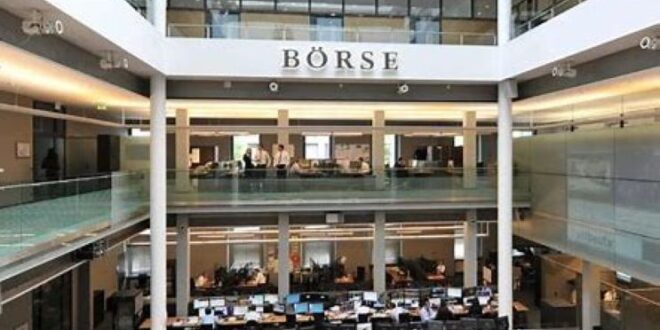In a groundbreaking development for both the German and European cryptocurrency markets, Boerse Stuttgart has become the first crypto provider in Germany to secure a MiCA (Markets in Crypto-Assets) license. This milestone is a significant step toward the regulation and legitimization of digital assets in the European Union. The MiCA license, which is part of the EU’s efforts to create a comprehensive regulatory framework for cryptocurrencies, will allow Boerse Stuttgart to operate in full compliance with European laws, setting a new standard for crypto providers across the continent.
What is MiCA and Why is It Important? MiCA, short for Markets in Crypto-Assets, is a regulatory framework introduced by the European Union to oversee the use of cryptocurrencies and related financial services within its member states. The aim of MiCA is to provide legal clarity and ensure that crypto assets are subject to similar regulatory oversight as traditional financial products, enhancing investor protection and market integrity.
For crypto providers like Boerse Stuttgart, receiving a MiCA license is a significant achievement, as it means they can offer their services with the full backing of the EU’s regulatory system. The license also signifies that the company has met stringent compliance and transparency standards, further reinforcing the legitimacy of cryptocurrencies in the European market.
Boerse Stuttgart’s Key Milestone As Germany’s second-largest stock exchange, Boerse Stuttgart has been a leader in adopting digital assets, offering services like crypto trading and digital asset management. The exchange’s decision to seek the MiCA license signals its commitment to staying ahead of the regulatory curve and to enhancing trust in its services.
By becoming the first German crypto provider to secure this license, Boerse Stuttgart is setting a precedent for other crypto firms in the region. The MiCA license will allow Boerse Stuttgart to expand its offerings, improve its compliance systems, and foster greater integration between traditional and digital financial markets.
Why is Boerse Stuttgart’s MiCA License a Game-Changer? The MiCA license is expected to have far-reaching implications for Boerse Stuttgart and the broader crypto ecosystem in Germany and Europe. Here’s why it’s such a significant event:
- Enhanced Trust and Credibility: As the first crypto provider in Germany to earn a MiCA license, Boerse Stuttgart is leading the way in demonstrating that digital assets can operate within a clear regulatory framework. This is expected to boost investor confidence and attract more institutional investors to the crypto space.
- Legal Clarity for Crypto Firms: The MiCA framework provides much-needed legal clarity for crypto firms operating in the EU. With this license, Boerse Stuttgart can ensure that its operations comply with European laws, reducing the risk of future legal complications and setting an example for other exchanges.
- Potential for Expanded Services: With the MiCA license, Boerse Stuttgart is now in a stronger position to expand its range of crypto services. This could include new products, partnerships, or enhanced trading features, helping to position the exchange as a leading player in the European crypto market.
- Future-Proofing the Crypto Industry: By embracing regulation early on, Boerse Stuttgart is future-proofing its operations. The MiCA framework is part of a larger EU effort to regulate digital assets comprehensively, and Boerse Stuttgart’s proactive approach positions it as a well-prepared, compliant leader in the space.
The MiCA License and Its Impact on the European Crypto Market Boerse Stuttgart’s achievement comes at a time when regulatory clarity is urgently needed across the crypto industry. In the absence of consistent regulation, crypto providers have faced significant challenges when navigating legal uncertainties. The MiCA framework aims to address these challenges by creating a standardized approach to crypto regulation across all EU member states, making it easier for companies to operate and for consumers to trust digital assets.
With the MiCA license in place, Boerse Stuttgart is well-positioned to take advantage of Europe’s growing crypto market. The regulation aims to make the EU a more attractive destination for crypto businesses, with a clear set of rules that can foster innovation while ensuring financial stability and consumer protection.
Additionally, the MiCA framework offers protections for investors in crypto markets, such as stricter requirements for custody services and measures to combat market manipulation. This has the potential to reduce the risks often associated with trading cryptocurrencies, making it a more secure environment for retail and institutional investors alike.
Boerse Stuttgart’s Role in Shaping the Future of Crypto By becoming the first to earn a MiCA license, Boerse Stuttgart is not just making history for itself—it is helping to shape the future of the crypto industry in Europe. The exchange has long been an advocate for integrating digital assets with traditional finance, and its MiCA certification further solidifies this commitment.
As other crypto providers seek to comply with the new regulatory standards, Boerse Stuttgart is setting the example for how firms can navigate the complex regulatory landscape. The success of its efforts could inspire other exchanges and financial institutions to follow suit, accelerating the shift toward a more regulated and stable crypto environment.
Challenges and Opportunities Ahead While Boerse Stuttgart’s achievement is a huge step forward, challenges remain. The crypto industry is constantly evolving, and the regulatory landscape will likely continue to shift in response to technological advancements and market developments. Boerse Stuttgart and other firms will need to remain agile and proactive to stay ahead of these changes.
At the same time, the MiCA license opens up numerous opportunities for Boerse Stuttgart. By offering a fully compliant platform, the exchange can attract a broader range of investors and institutions, while continuing to innovate within the digital asset space. Additionally, Boerse Stuttgart could play a key role in helping other crypto providers understand how to navigate regulatory challenges, becoming a key player in Europe’s crypto ecosystem.
A New Era for Crypto in Europe Boerse Stuttgart’s historic achievement in becoming the first German crypto provider to receive a MiCA license represents a new era of regulatory compliance and market legitimacy for cryptocurrencies in Europe. This move highlights the growing recognition of digital assets as a legitimate financial asset class and sets a positive example for other crypto firms in the region.
As the regulatory framework surrounding crypto continues to evolve, Boerse Stuttgart’s proactive stance in embracing MiCA will undoubtedly help shape the future of digital finance in the EU. For both investors and companies operating in the crypto space, this landmark achievement signals a promising step toward a more secure, transparent, and innovative cryptocurrency ecosystem.
 Business Sandesh Indian Newspaper | Articles | Opinion Pieces | Research Studies | Findings & News | Sandesh News
Business Sandesh Indian Newspaper | Articles | Opinion Pieces | Research Studies | Findings & News | Sandesh News


